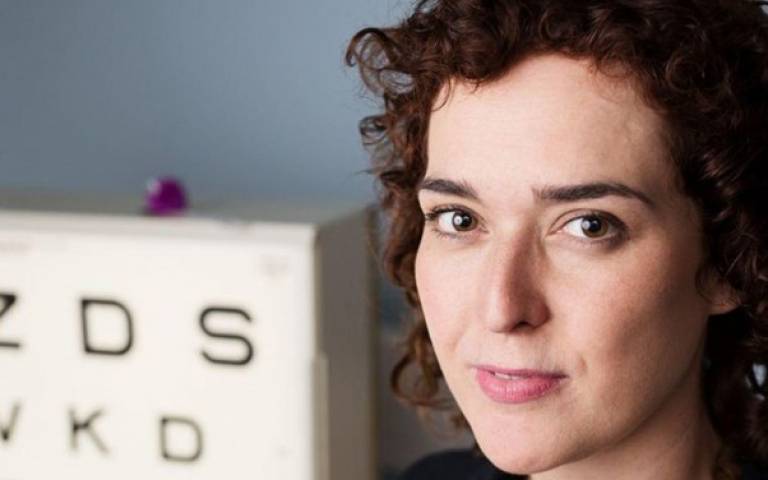Meet the expert: Dr Tessa Dekker

We caught up with Dr Dekker to ask her about her research, what excites her most about her work and what advice she would give her younger self.
What attracted you to the study of the eye and why is it important?
I am attracted to eye research because visual processes are relatively accessible to study compared to other cognitive functions, which makes the eye a perfect model system for understanding how genes, the brain, and experience interact in human development. For this same reason, eye research is at the forefront of next-generation therapies that act at the gene and protein level, and this raises many exciting new research questions about sight recovery, restoration, and neural plasticity. This is important because as well as uncovering fundamental principles of how our sensory systems develop and shape our cognition, the clinical applications of this work offer a litmus test for successful therapeutic technology in neurological diseases.
Can you tell us about your current research?
In the UCL Child Vision Lab, we study how infants, children, and teens with normal sight and eye disease come to see the world more like adults, and learn to interact with their visual environment more adaptively and safely. We develop and use new digital and neuroimaging technologies to investigate mechanisms of plasticity in the developing visual system, what happens to these processes in the case of eye disease, and in response to novel and potentially sight-rescuing treatments for people with severe vision loss.
What aspect of your work most excites you and why?
I love to investigate fundamental questions about how the developing human brain works whilst also working with real patients who may eventually benefit from the research. I also really enjoy exchanging ideas with the excellent researchers and students in my lab, my departments in UCL and collaborating institutions, and converting ideas from our many diverse backgrounds and disciplines into new research studies.
What would you say to someone who is considering whether to study vision and eye health at UCL?
I would say (somewhat biased of course) that this is a fascinating and very versatile field with many clinical and technological applications, so is an excellent topic to invest in for study. UCL is one of the best places in the world to do so because of the access to many experts from different backgrounds and disciplines working on this in a single institution, and because of UCL's close ties with various hospitals that lead eye research in Europe.
What’s the best advice you would give your younger self?
I would advise my younger self to relax and enjoy the cool stuff that you get to do, learn, and especially fail at as a newly developing scientist. Not being afraid to make mistakes, learn from them, and share them openly with others, is a key skill in good science. Unfortunately, in today's world, younger versions of me may not be able to do the PhD that kick-started my career in the UK due to impacts of Brexit, and I'm saddened by this restricted access to promising new researchers for our scientific community and its future.
 Close
Close

